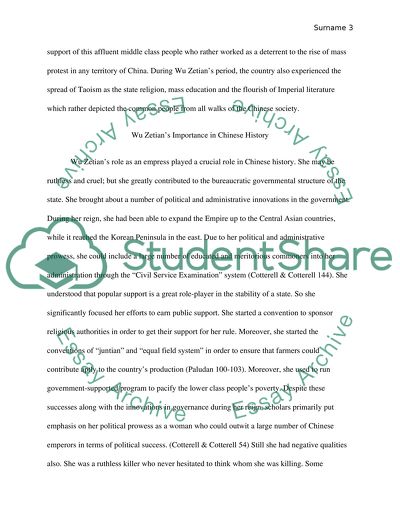Cite this document
(“A Critical Analysis of Wu Zetian as an Example of Womens Political Essay”, n.d.)
A Critical Analysis of Wu Zetian as an Example of Womens Political Essay. Retrieved from https://studentshare.org/sociology/1471221-a-critical-analysis-of-wu-zetian-as-an-example-of-womens-political-empowerment
A Critical Analysis of Wu Zetian as an Example of Womens Political Essay. Retrieved from https://studentshare.org/sociology/1471221-a-critical-analysis-of-wu-zetian-as-an-example-of-womens-political-empowerment
(A Critical Analysis of Wu Zetian As an Example of Womens Political Essay)
A Critical Analysis of Wu Zetian As an Example of Womens Political Essay. https://studentshare.org/sociology/1471221-a-critical-analysis-of-wu-zetian-as-an-example-of-womens-political-empowerment.
A Critical Analysis of Wu Zetian As an Example of Womens Political Essay. https://studentshare.org/sociology/1471221-a-critical-analysis-of-wu-zetian-as-an-example-of-womens-political-empowerment.
“A Critical Analysis of Wu Zetian As an Example of Womens Political Essay”, n.d. https://studentshare.org/sociology/1471221-a-critical-analysis-of-wu-zetian-as-an-example-of-womens-political-empowerment.


